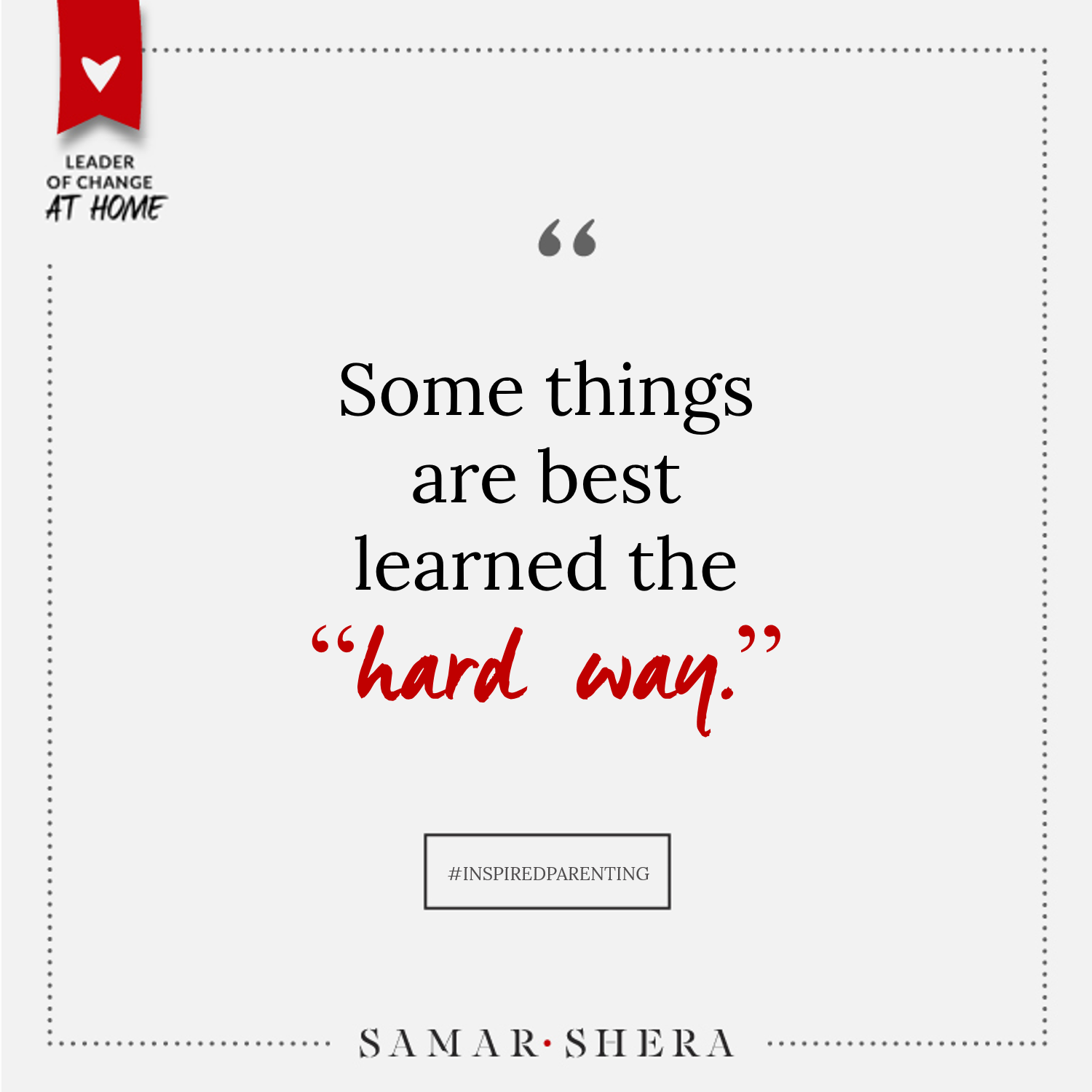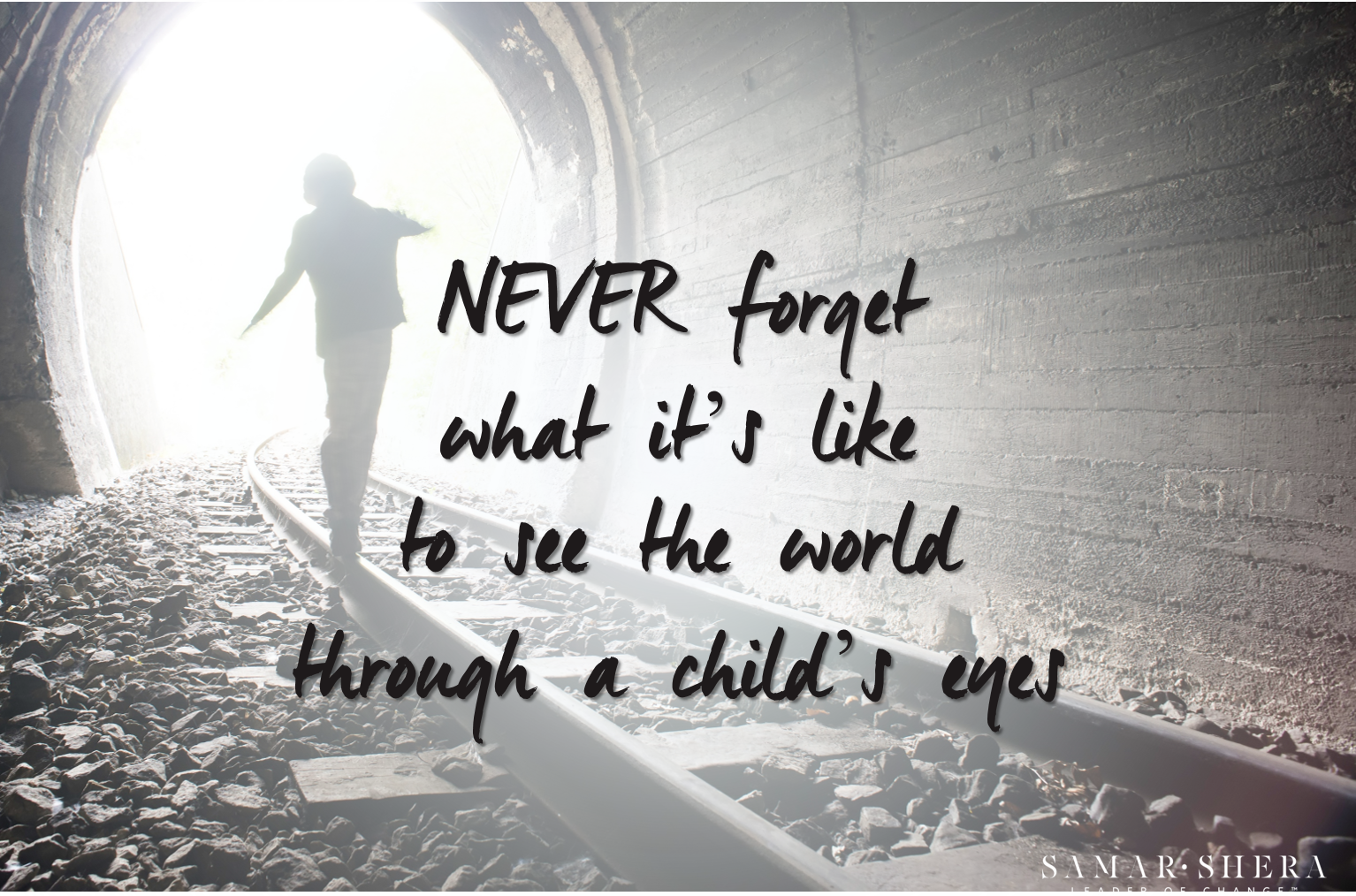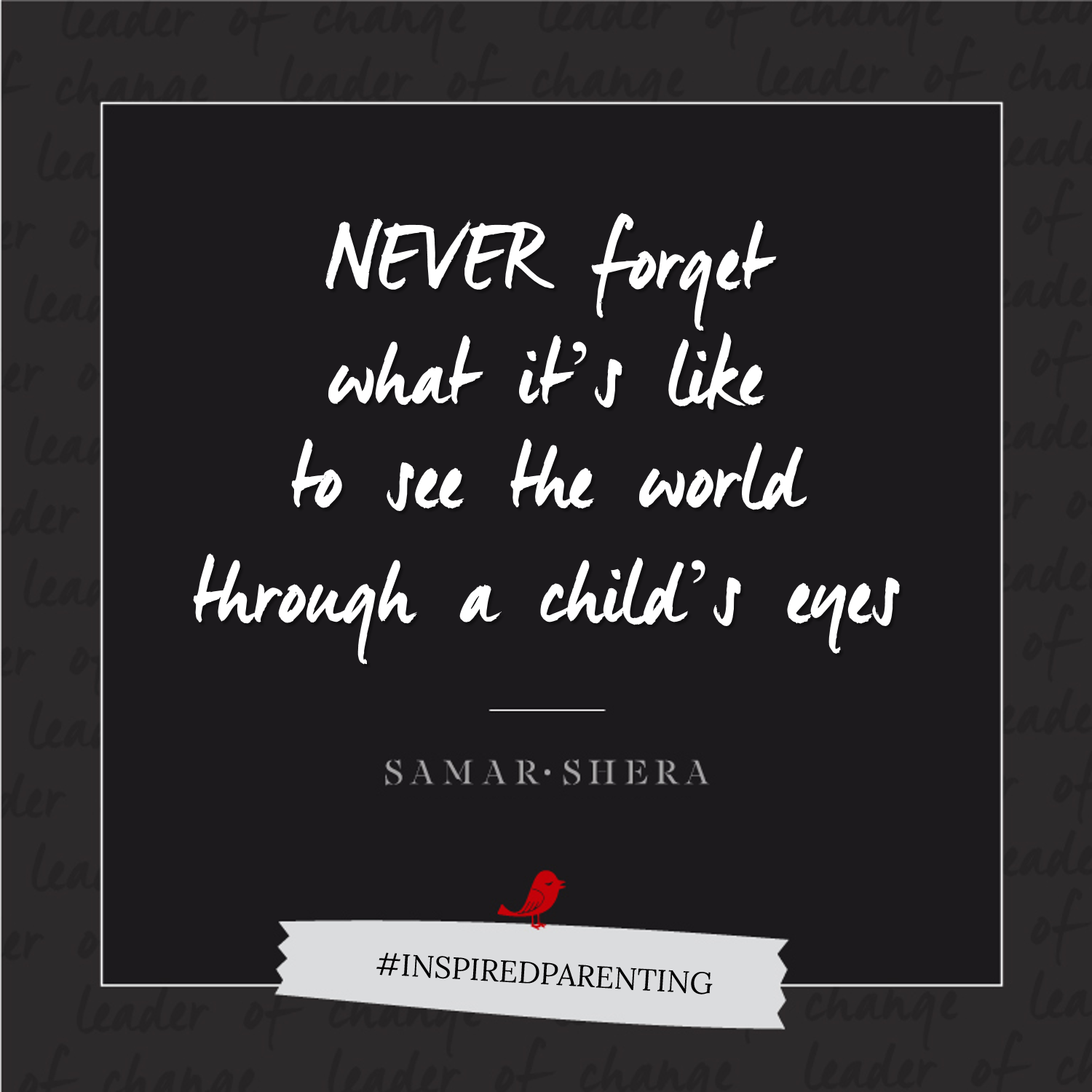< BACK | AT HOME • April 4, 2016
Let their light shine – allowing children to be their authentic selves
As adults, we strive (and sometimes struggle) to become self-aware, self-reflective and emotional intelligent. Inspired parenting is about teaching our children – the next generation, our future – these skills at an early age. One particular skill is to allow our children to grow into the best version of themselves as opposed to mini versions of us.
Recently, I was dealing with a parent struggling with her teenage daughter and her actions. Her daughter was behaving exactly as she did at that age, and my client was responding exactly as her parents did – ‘commanding’ her to do and not to do. Her daughter instantaneously rebelled and when I asked my client how she had responded to the same treatment, her answer was:
“Well, I rebelled”.
Cementing over our children’s authentic selves with a set of values that applied to our day and age – and let it be said every generation’s “day and age” is shockingly different (even more so with the next generation where technology will progress 100 times faster than the previous century) – we’re equipping them with an old set of values that don’t work within their new environment (let it be said it didn’t work in our environment either) and the little glimmerings that come through of what they truly felt was right dies under the conditioning we have imposed. Not only are we mis-equipping them for the journey of life, we’re dimming their light.
Let your children do what they believe is right, instead of forcing them to do what we as parents believe is right. Nor do I suggest waiting until adolescence to start doing this. Allowing them to make decisions and navigate with their internal compass teaches children to actually learn and get to know themselves. It is not always easy, as a parent, to let our children make their own decisions and then live with the outcome. It is far easier to tell them how to act and what choices to make, in which case we are simply building robot versions of ourselves. But through the difficult route, we build children capable of making decisions and congruent in their values – a value system they created.
Imposing our thoughts and will on to our children creates within them major personal struggle. We are in essence telling them who they are is not good enough, what they think is not worthy of being heard and decision-making is stunted before ever having a chance to be learned (alas, I have encountered one too many adults incapable of the life skill of decision making).
Instead,
- Ask your child what HE wants to do in a situation versus telling him what to because you have a set of ideals of what’s “right”.
- Take the time to understand what he wants to do – with an open mind – even if you disagree. We all forget what it’s like to see the world through a child’s eyes, so don’t discount what is important to them. You’ll be surprised at how imaginative a child’s inner workings can be.
- Let him accept the consequences of his actions. Although it’s hard, the natural cause and effect of things can be much more beneficial than any punishment you could ever come up with. And if it’s a good deed, even better, let your child experience the reward – even it if is just the warm feeling of having done something nice.
- In cases where you feel you must change his mind, tell him why. Guide him to the better decision and explain your rationale so that he understands. At the end of the day, even if you order him to do something, he can still choose not to do it.
The key lies in communication. Over the course of my own parenting, faced with similar situations, I have understood why my parents did what they did. In hindsight, I realise a lot of pain and drama could have been avoided if they simply communicated their intentions.
Make an effort to understand your child and explain your perception of ‘right’ and ‘wrong’. Instead of telling them what to do, teach them how to navigate through making their own choices. Gone is the era of authoritative parenting. Parenting is now a collaborative process between kids and parents – not a hierarchical process where the parents are dictators and the kids are followers.
Let their light shine as only theirs can.
Pin it for later!






